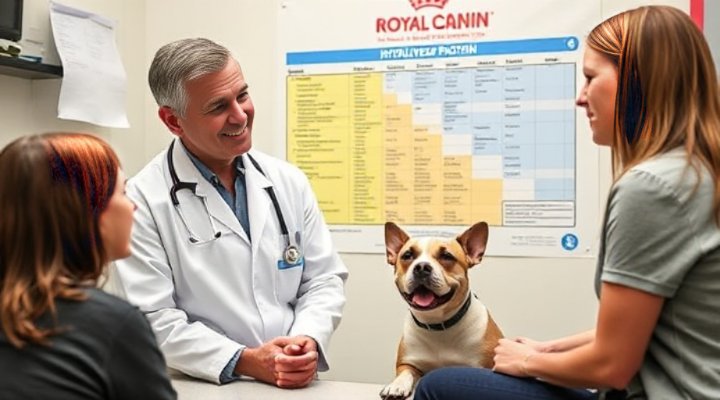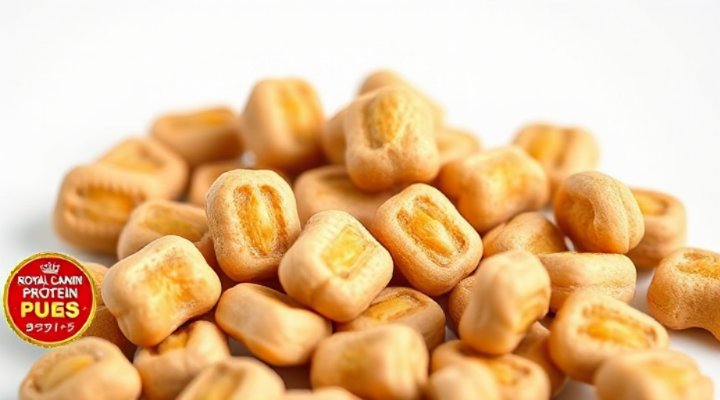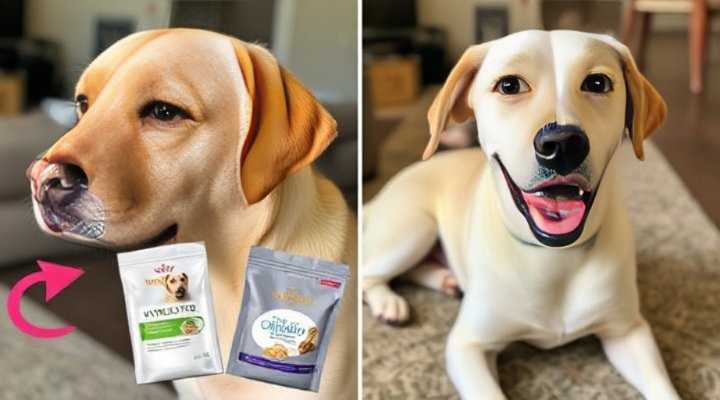When it comes to managing food allergies in dogs, Royal Canin Hydrolyzed Protein stands out as a scientifically formulated solution. This specialized diet breaks down proteins into smaller molecules that are less likely to trigger allergic reactions, while still providing complete nutrition your dog needs.

Understanding Food Allergies in Dogs
Food allergies in dogs can manifest in various ways – from itchy skin and ear infections to digestive issues. According to the American Veterinary Medical Association, food allergies affect about 10% of all allergy cases in dogs. Common culprits include beef, dairy, wheat, and chicken proteins.
That’s where Royal Canin hydrolyzed protein for dogs with allergies comes in. By using a process called hydrolysis, the proteins in this food are broken down into tiny fragments that your dog’s immune system is less likely to recognize as allergens.

How Hydrolyzed Protein Helps Allergic Dogs
The science behind Royal Canin’s formula is fascinating. Hydrolysis essentially pre-digests the proteins, reducing their molecular weight to below what typically triggers an immune response. This means:
- Reduced itchiness and skin irritation
- Fewer ear infections
- Improved digestive health
- Better nutrient absorption
For more information on managing canine allergies, check out our comprehensive guide on best dog food for allergies.

Comparing Royal Canin to Other Hypoallergenic Options
While there are several hypoallergenic dog foods on the market, Royal Canin hydrolyzed protein offers some unique advantages:
| Feature | Royal Canin Hydrolyzed | Other Brands |
|---|---|---|
| Protein Source | Soy protein hydrolyzed to small peptides | Often novel proteins like duck or venison |
| Molecular Weight | Under 10,000 daltons | Varies widely |
| Veterinary Support | Extensive clinical studies | Limited research |
If you’re considering other specialized diets, our article on hypoallergenic dog food provides valuable comparisons.

Transitioning to Royal Canin Hydrolyzed Protein
Switching your dog to this food requires patience. Here’s a recommended transition schedule:
- Days 1-3: 25% new food, 75% current food
- Days 4-6: 50% new food, 50% current food
- Days 7-9: 75% new food, 25% current food
- Day 10+: 100% Royal Canin Hydrolyzed
Remember, it may take 8-12 weeks to see full results as your dog’s system adjusts. The FDA recommends consulting your vet before making significant dietary changes.
Real-Life Success Stories
I’ll never forget Max, my neighbor’s Labrador who suffered from chronic ear infections and constant scratching. After switching to Royal Canin hydrolyzed protein for dogs with allergies, his transformation was remarkable. Within two months, his coat became shiny, the scratching stopped, and he regained his playful energy.
Similarly, many pet owners report dramatic improvements in their allergic dogs after making the switch. For more success stories and alternative options, see our review of Natural Balance for sensitive stomachs.
Key Benefits at a Glance
- Scientifically formulated for allergic dogs
- Highly digestible hydrolyzed proteins
- Supports skin and coat health
- Promotes digestive wellness
- Veterinary recommended
Whether your dog has mild sensitivities or severe allergies, Royal Canin hydrolyzed protein offers a scientifically-backed solution that can significantly improve their quality of life. For puppies with allergies, you might also consider Pro Plan puppy formulas as they grow.
Related Keywords: royal canin hydrolyzed protein, dog food for allergies, hypoallergenic dog food, best dog food for allergic dogs, hydrolyzed protein benefits, veterinary dog food for allergies, soy protein dog food, allergy relief for dogs
